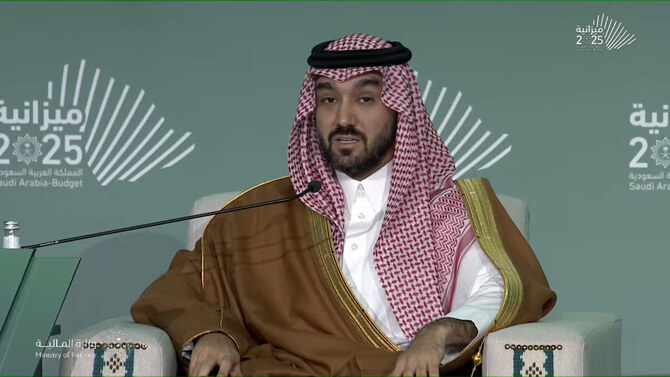RIYADH: Saudi Arabia’s ongoing sports privatization initiative has sparked significant interest from both local and international investors. A total of 25 companies are now actively pursuing investment opportunities in six of the 14 sports clubs proposed for privatization in the first phase.
During the Budget Forum 2025, Sports Minister Prince Abdulaziz bin Turki Al-Faisal discussed the economic potential of the privatization drive, estimating that these investments could amount to SR500 million ($133 million).
“There is also interest from foreign companies in investing and acquiring local sports clubs, which we will announce soon,” the minister said.
Prince Abdulaziz noted that the Saudi Pro League’s international profile is on the rise, with broadcasts now reaching over 160 countries. Revenues from the league have increased by 33 percent this year, reflecting growing participation and interest in the Kingdom’s sports sector.
The expansion of sports is part of Saudi Arabia’s broader Vision 2030 reforms, which seek to diversify the country’s economy. To facilitate investment in the sector, the privatization process has been streamlined with the launch of a platform that licenses academies and clubs, making it easier for individuals and businesses to invest.
“In 2018, no one was allowed to establish a club except through the hassle of regulatory processes. Now, through the platform, anyone can open their club or academy and invest easily in the sector,” he explained.
Saudi Arabia has also made notable progress in sports tourism, hosting around 80 sports events over the past four years, attracting 2.5 million visitors. Major events such as the Formula One race in Jeddah have brought substantial economic benefits. The 2023 edition, for instance, generated over 20,000 job opportunities and attracted attendees from 160 different countries.
The minister further highlighted improvements in sports sector administration, including a reduction in contract termination penalties among clubs from SR616 million to SR30 million last year. He also pointed to the shift from part-time or voluntary staffing to a full-time workforce of 5,000 employees, with a target of creating 130,000 direct and indirect jobs by 2030.
Saudi Tourism Minister Ahmed Al-Khateeb shared that tourism’s contribution to the Kingdom’s gross domestic product had increased from 3 percent in 2018 to 5 percent in 2023, with a target of 10 percent by 2030.
“In the recent G20 meeting in Brazil, they presented the tourism growth of the nations in the first seven months of this year compared to the same period in 2019. Saudi Arabia was the highest with 70 percent, followed by Turkiye with 5 percent — a huge growth gap between the first and the second,” Al-Khateeb remarked.
Domestic travel in Saudi Arabia has also seen a surge, with the average number of flights per Saudi citizen or resident rising from 1.4 in 2018 to 2.5 in 2023. This compares favorably with leading global tourism destinations such as France (3.5) and Spain (2.8).
The minister also revealed that 14 percent of tourists visited more than one city last year. This figure increased to 27 percent in the first nine months of the current year.
Saudi Arabia’s focus on cultural, sports, and historical events has positioned the Kingdom to capture a share of the 1.6 billion travelers expected to grow to 3.8 billion by 2032. Al-Khateeb emphasized that Vision 2030 initiatives have been central to this growth, driving both job creation and economic diversification.
In a separate panel, Ibrahim Al-Mubarak, assistant minister of Investment, highlighted the role of monetary policies in fostering sustainability and building trust with investors.
“There is no other spot in the world that has seen the transformation witnessed in the Kingdom at such an unprecedented speed since the launch of Vision 2030,” Al-Mubarak said.
He also praised the upcoming launch of a new investment system, set to replace the current foreign investment system in early 2025. This new framework aims to offer equal support to both domestic and international investors, consolidating investor rights and freedoms into a more transparent and business-friendly environment.
Al-Mubarak further celebrated the Kingdom’s success in the regional headquarters program, which has already surpassed its Vision 2030 target of attracting 500 regional headquarters by 2030.
“We are now hosting 540 companies by 2024,” he added, emphasizing Saudi Arabia’s growing position as a regional business hub.




















